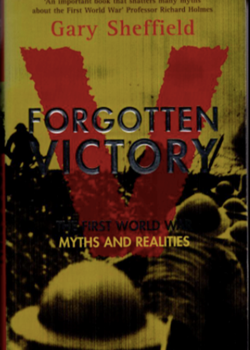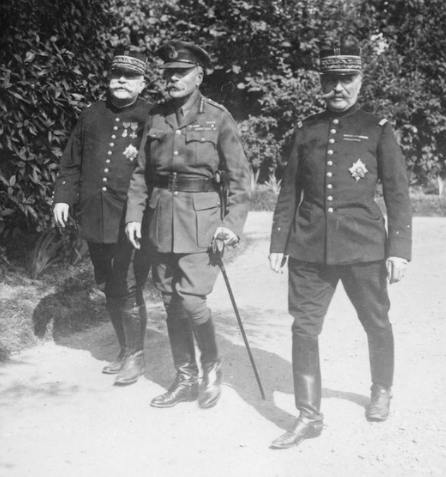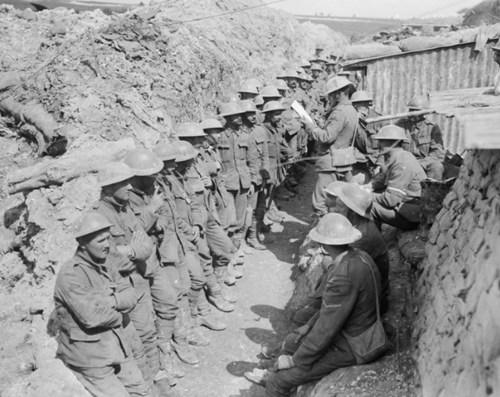Forgotten Victory by Professor Gary Sheffield
- Home
- World War I Book Reviews
- Forgotten Victory by Professor Gary Sheffield

Headline Book Publishing, £20.00, 298pp. ISBN 0 74727157 7.
Although published last year [2001], lack of a publisher's copy has sadly long delayed the review of Gary Sheffield's Forgotten Victory in Stand To! Fortunately, apart from his 'day job' - Warfare Historian on the Higher Command and Staff Course - he is well known through his regular, and effective, expositions of revisionist views at WFA meetings and many members are already aware of the book.
That it has been a great publishing success - with a paperback edition imminent - should be cause for particular pleasure for all that have taken study beyond the bigoted blatherings of the Butchers and Bunglers nursery school.

Gary's objective is to 'address the historical amnesia' and the partialism -both through deliberate pose and lack of research - which has rendered the Great War 'a disaster' in the public mind and blanketed both its massive significance and the victories which maintained our freedoms. It was not, we are reminded, a war of poets, fought only by the disillusioned, led simply by the uncaring and the unprofessional.
Above all Forgotten Victory provides a balanced revisionist overview of most of the key aspects of the Great War using a wide range of recent academic thinking and study. As well as the myths of futility and the rights and wrongs of the war, his analysis ranges from Haig to an overview of campaigns (before and after the crest of the learning curve which led to the British Army's final victory).
Quite apart from the overall scope of the book - effectively a continuum of efficient and digestible essays Sheffield's exposition on the origins of the war is a clear synthesis of the facts. Throughout he places Britain's role and actions in context, whilst recognising and measuring the contributions of its allies and the abilities of the enemy. The challenging, 'popular', and highly effective text (supported by lengthy notes and references, a reading list and a usable index) places Forgotten Victory amongst the most important books to have been published on the Great War for some years.

Whether it will change public opinion is another matter, but when (in the distant future) the ruler of history - and not weight of emotion - measures the Great War, I feel sure that Gary Sheffield's views will be firmly amongst those which predominate.
Very strongly recommended. Reviewed by David Filsell
Professor Gary Sheffield became the Honorary President of The Western Front Association in 2019.
[This review first appeared in the journal of The Western Front Association Stand To! No.65 September 2002. Members receive the magazine three times a year and have access to the online archive of over 100 editions. Members also receive our in-house magazine Bulletin three times a year.]





